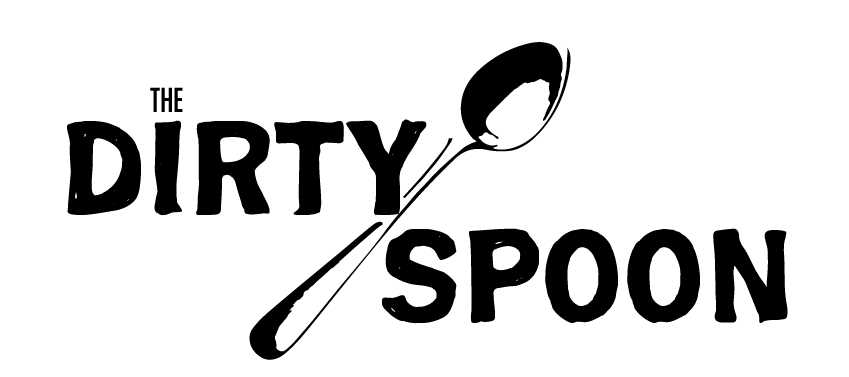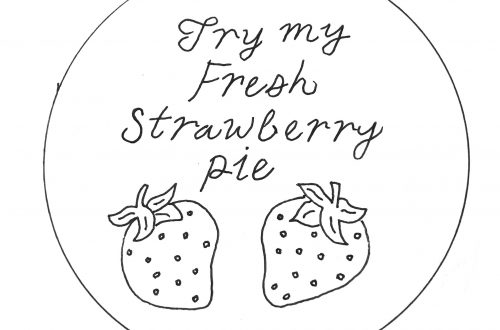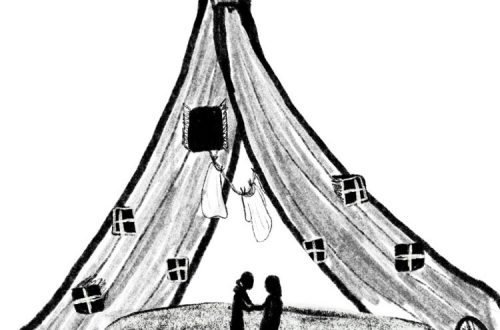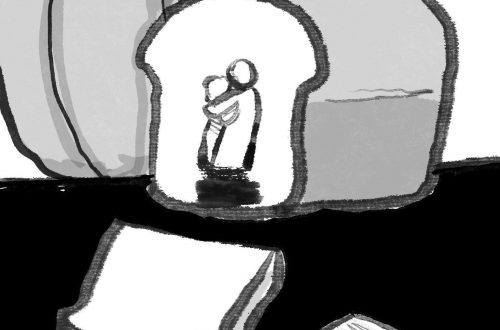by Jonathan Ammons
I’ve been learning a lot about kindness lately. I’ve never been the best at it. I’ve been right a lot, but I haven’t always been kind. In all honesty, I’ve always been one of those people who aggressively pursues quality and pleasure: things that don’t–by nature–require kindness or niceties. I have a reputation for being a bit of an asshole to work with because I tend to be a bit of a blunt instrument when it comes to communications. But I’m also someone who has never meant ill will. I would never slight or badger someone out of spite; my wrath usually carries a lesson with it. Or at least, I like to think it does. As a result, I’ve seen a rocky ride in the food and beverage industry, as my first inclination isn’t to make sure everyone is okay, but rather to make sure everything is being done right.
Those of us who work in kitchens or behind bars know the struggle. You’re a manager on a busy night and your server refuses to call ticket orders to the kitchen, just leaving the tickets dangling. The result is hours of traffic jams in the kitchen, extremely late ticket times, and angry customers, angry kitchen staff, and angry front of house. So you address the server, telling them to do their job, yet still they neglect to call their tickets in correctly. You consult with your staff, and you tell them, “Look, since Mark isn’t calling in his tickets, and it’s clogging up all of your work because you’re having to delay tickets that were called in on time to prepare the dangling orders that he neglected, if he doesn’t call in his tickets, if he just leaves them hanging on the printer, just don’t make them. He’ll get the picture when his tables don’t get their food.” It’s tough love. That is how a lot of kitchens operate.
I remember working at the Aviary in Chicago, and being struck by how coarse and abrasive everyone was. It was always a terse “Wrong!” Before the expo slung the drink back to you, rejecting the laborious cocktail you had just slaved over for three minutes, because of a smudge on the lip of the glass. Or it was a firm, “You’re in the way,” if you were stooping down to get something out of a cabinet. And when I asked a coworker why everyone was so mean, he acted like he had no idea what I was talking about, “No one’s being mean!” He said, “We just don’t have a lot of time for formalities. No one asks a question here. They just tell you what they need, and you do it.” There was no ill will, but this was the most efficient way to let a team know what you needed to do your job well, efficiently…and desperately.
But there were a few who would come behind me and correct my mistakes. They usually did it silently, quickly, and kindly. And it was those who started teaching me how to be kinder to my crew. In this regard, I’ve learned a lot from chefs, because chefs–by the nature of their work–are people who feel led to feed people. Their primary calling is to tend to your needs and nourish you, and while most chefs have the reputation for being abrasive and foul-mouthed, they are usually kindhearted folks underneath that gruff callous. Anyone who feels called to feed the hungry can’t be all bad.
Another great lesson in kindness came from my father. I was five or six years old when our family went to Washington, D.C., for the White House Conference on Small Business, which my father attended regularly. He and I were walking through a parking lot on a muggy, hot summer day when a homeless man approached us. “I’m hungry,” he said.
We happened to be passing a Burger King, so my father replied, “So are we. Come on in, I’ll buy you lunch.”
“They won’t let me in there no more, sir. Said I was soliciting.”
“They will if you sit with us.” My father gestured as he headed toward the doors, tie flapping in the breeze, briefcase in hand.
We ordered. After he was handed his clear water cup, the man proceeded to fill it with Fruit Punch. “Sir,” said the cashier, “Those cups are for water only!”
“I know!” he said confidently, as he continued filling it to the brim.
A Whopper is a cheap lunch, so the act of feeding the man was not what impressed me the most. It was the time my father took to do it. It was having the man sit with us, it was my father defiantly saying, If they won’t feed you alone, then run in our pack. We’ll feed you.
In college I had a friend named Adam. He ran a ministry in Pritchard Park here in Asheville, and the ministry would feed anyone for free. He made no money off of it; in fact, he often found himself draining his bank account on months when no one donated anything. He was not a fantastic cook. But that wasn’t the point. He saw a chance to do something kind for someone, and he did it. It even won him a Best of WNC award for being the unsung hero of the year after fighting a long and tiresome battle with Mayor Terry Bellamy, who fought to have his service shut down. He did that kind of thing a lot. And although he himself was religious, there was no sermon or message attached to his actions. It was simply an act of kindness.
I was wrapping up a hike with a friend on a cool spring day in Black Mountain when we ran across Adam, knee-deep in water in a pond digging out an old washing machine from the brackish waters.
“This really nice old woman lives here,” he said, “And all the rednecks just dump shit in her pond when she’s away instead of taking it to the dump. I just noticed she was out of town, so I thought it would be nice to get it cleaned up for her while she was away.” I don’t think he ever told her that he was the one responsible for the clean up, it was just what he did instead of playing video games or watching movies.
No, I’m not steering towards any concise moral or lesson for the day. Life is not the movies; our stories don’t clean up that well. I don’t believe in true altruism, as I believe that 99% of the decisions we make as humans are either from the avoidance of pain or the pursuit of pleasure, so don’t expect me to ask you to do one random act of kindness a day or something sappy like that.
Humans are pack animals. We have always, throughout history, worked to build societies together: communities, neighborhoods, families. If you’re ever around a family that has multiple dogs, look at how the dogs interact. They lick each others’ wounds, comfort each other when the thunder cracks…just the way they tend to their master’s needs. The more you see it, the more you want to emulate it, not just because it’s endearing, but because it literally makes things a little bit better. A little more kindness makes a little more light in a dark, dark tunnel.




